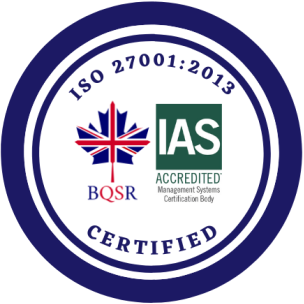Learn how recruitment automation can streamline your hiring process, improve candidate experiences, and help you make data-driven decisions.

What is recruitment automation?
Recruitment automation refers to the use of technology to automate repetitive aspects of your hiring process.
It encompasses various tools and software designed to simplify tasks like sourcing candidates, scheduling interviews, and communicating with applicants.
Agency recruiters worldwide have been focusing on adopting enterprise automation to streamline their recruitment efforts for three main primary reasons—
- To meet their client’s needs in less time.
- To supply better quality candidates.
- To provide a positive candidate experience.
If you look at this stat from Gartner, you’ll notice that 30% of organizations used AI-based functionalities such as recruitment automation in their HR functions in 2022.
Why are these numbers increasing with time?
This is primarily because most of these companies that had implemented recruitment automation saved money and made more accurate data-driven decisions when it came to hiring.
In fact, a case study by Gravity Flow states that a medical company saved $4,000 per month by using hiring automation.
Also read: How to choose the right recruitment automation software for your agency?
What factors are driving recruitment automation?

1. The growing complexity of talent acquisition
As companies expand globally and the skills required for jobs evolve, the process of finding the right candidates becomes increasingly complex.
Automation helps streamline this complexity by efficiently sorting through large volumes of applicants to identify those best suited for the roles.
2. The need for efficiency in high-volume recruiting
In sectors characterized by high-volume hiring, such as retail, hospitality, and customer service, automation plays a pivotal role in streamlining the hiring process.
Leveraging automated tools for tasks like screening, scheduling, and communication accelerates hiring and ensures consistency, enabling recruiters to focus on strategic aspects of talent acquisition.
3. Technological advancements and AI integrations
The integration of AI and machine learning technologies in recruitment tools has made it possible to automate not just the administrative parts of hiring but also more nuanced aspects, such as candidate engagement and pre-selection assessments.
This technology can analyze vast amounts of data to predict which candidates are most likely to succeed in a role.
4. Focus on data-driven decisions
Automation tools provide you with data and analytics that support strategic decision-making.
This data-driven approach to recruitment enables organizations to optimize their hiring strategies, predict future hiring needs, and improve overall HR processes.
Also read: 20+ amazing tools for recruiters to master the art of productivity
5 major benefits of recruitment automation

Recruiting nowadays is all about marketing your open job roles to suitable candidates and your services to clients in need.
To do this without any hassle, you’ll need to take care of your operational tasks. But does that mean you hire more people in your agency and burn a huge hole in your pocket?
Absolutely no!
This is where automation kicks in.
1. Speeds up the recruitment process
Recruitment cycles can be dramatically accelerated by automating many of the routine tasks in the recruitment process, like screening resumes, conducting initial phone screens, and scheduling interviews.
Automation allows recruiting teams to handle a higher volume of applicants more quickly and efficiently rather than relying solely on human recruiters’ time and availability.
This greatly reduces the time required to fill open jobs.
2. Enhances quality of hire
There are two major recruitment KPIs that recruiters swear by— quality of hire and time-to-fill.
Quality of hire will determine the efficiency of the candidates in your client’s organization.
Imagine you end up hiring a candidate who looked good on paper but was a complete mess when it came to performance. The employee will churn out in a few months, and you’ll end up back in square one.
However, implementing recruitment automation can help recruiters hire candidates based on the qualities required for that specific job role.
Especially during high-volume recruitment, when there’s a solid chance of you messing up due to an overload of CVs, automation can save you.
3. Helps in providing positive candidate experience
Automated systems provide timely updates, feedback, and communication, making candidates feel valued and informed throughout the process.
This personalized touchpoint fosters a positive impression of the organization, increasing the likelihood of acceptance if an offer is extended.
Moreover, the streamlined process reduces wait times and uncertainty, aspects highly appreciated by candidates in today’s competitive job market.
4. Mitigates unconscious bias
There’s no better way of getting rid of common hiring biases than recruiting automation.
Often, when you manually go through CVs, you might be unconsciously biased towards a candidate.
Many factors can provoke this, including social stereotypes, cultural context, any form of personal experience, background, religion, and more.
When you use recruitment automation, you end up being objective and analytical, thereby mitigating any form of hiring biases. This will, in turn, help your diversity hiring efforts.
5. Reduces recruitment costs and improves ROI
You can significantly reduce operational costs associated with manual hiring activities. Automation tools streamline tasks allowing talent acquisition teams to allocate their resources more efficiently.
This reduction in manual labor not only lowers expenses but also accelerates the recruitment cycle, enhancing the overall return on investment (ROI).
Also, by quickly identifying and engaging top talent, companies improve their chances of securing high-quality hires, further contributing to a stronger ROI.
Also read: How can data optimise your recruitment budget?
5 simple ways to implement recruitment process automation
1. Invest in an ATS
An ATS can transform a company’s recruitment landscape by organizing and simplifying the application process. It acts as a database for all applicants, automating the sorting, filtering, and ranking of candidates based on the criteria set by the employer, thereby streamlining the recruitment workflow.
2. Automate candidate screening and shortlisting
This involves using software to parse resumes and applications for specific keywords and qualifications. This automates the tedious process of manually reviewing each application. It ensures that only candidates who meet the job requirements are shortlisted, saving recruiters significant time.
3. Leverage automated interview scheduling tools
These tools eliminate the back-and-forth communication traditionally required to schedule interviews. Candidates can choose their preferred times from available slots, and the system automatically updates the recruiters’ calendars, optimizing the scheduling process for efficiency.
4. Utilize AI for background checks
AI can analyze vast amounts of data faster and more accurately to conduct comprehensive background checks and assessments. This automation ensures a thorough vetting process and helps predict candidate success in specific roles, contributing to better hiring decisions.
5. Implement chatbots for initial candidate engagement
Chatbots can provide immediate responses to candidate inquiries, engage them in the initial screening questions, and even schedule interviews. This tool enhances the candidate experience by providing 24/7 communication and reducing the administrative burden on recruiters.
Also read: Decoding everything you need to know about criminal background checks
What are some examples of recruitment automation tools?
1. Applicant tracking system
Agency recruiters use Applicant Tracking Systems (ATS) to source, screen, parse, and track the entire recruitment process. If you invest in a feature-rich ATS, major parts of your hiring process will be automated.
Often agency recruiters make the mistake of buying an ATS tailor-made for internal recruitment. In this case, you might end up paying extra for a lot of features that you might never even use.
It’s therefore advisable to choose software that is specifically made for agency recruiters.
P.S: If you’re looking for an ATS, you might want to consider checking out Recruit CRM.
2. Recruitment data analytics tools
These tools capture all recruitment data from ATS, chatbots, interviews, etc., to generate actionable insights. Some examples include:
a. Benchmarking hiring KPIs against industry standards
b. Identifying bottlenecks and drop-offs in the hiring funnel
c. Predicting future hiring demand and skills gaps
d. Evaluating the effectiveness of sourcing channels and job ads
3. Automated interview scheduling software
This type of software automatically scans recruiters’ and candidates’ calendars to identify common availability for scheduling interviews.
Their key features are suggesting alternative time slots to accommodate multiple schedules, sending calendar invites and reminders by email, and collecting interview feedback and assessment scores digitally. Much like email marketing software handles campaign coordination.
Interview scheduling softwares also helps in tracking the end-to-end interview process from scheduling to hiring and integrating with video conferencing tools for virtual interviews.
You might also like: Take a look at Recruit CRM’s transformative automation and AI features that will blow your mind!
If you think automation is going to cost recruiters their jobs, you’re mistaken. Instead, it’s designed to make your lives better so that you can focus on more strategic tasks at hand.
Recruitment agencies worldwide have started adopting automation to place quality candidates and win more clients.
From time management to productivity, it’s a boon for the industry.
Frequently asked questions
1. What organizations use recruitment automation technologies?
Organizations across various sectors, including technology, healthcare, education, and finance, utilize recruitment automation.
It’s particularly beneficial for companies facing high-volume hiring, those with a strong focus on diversity and inclusion, and businesses aiming for rapid growth.
2. What are common misconceptions about automation in recruitment?
Some common misconceptions about recruitment automation are:
a. Automation is mistakenly thought to reduce human interaction. In fact, it actually reallocates time for more impactful recruiter-candidate connections.
b. The fear that technology might replace human roles is unfounded; instead, it augments and streamlines the recruitment workflow.
3. When should you invest in a recruitment automation tool?
Investing in recruitment automation becomes crucial when the manual handling of recruitment processes becomes inefficient or when the quality of hire decreases due to process delays.
It’s also essential when aiming to scale operations without proportionally increasing recruitment staff.
4. Are there any challenges of recruitment automation?
Some challenges of recruitment automation include:
- Ensuring data quality is crucial since automation depends on accurate input data for effectiveness.
- Over-reliance on automation without human oversight risks missing unique candidate qualities that aren’t quantifiable.
- Staying updated with rapidly evolving technology and integrating new tools into existing systems presents a significant challenge.
You can tackle all these challenges by investing in a recruitment automation software today.
5. What are some manual tasks in recruitment that you can automate?
Here are some common manual tasks that can be automated and the reasons why automation is beneficial:
- Candidate screening
- Resume parsing
- Conducting background checks
- Collecting feedback
- Job posting
Honestly, the list never ends!
That said, book a call with one of our product specialists to understand all the whys and hows of recruitment automation.




